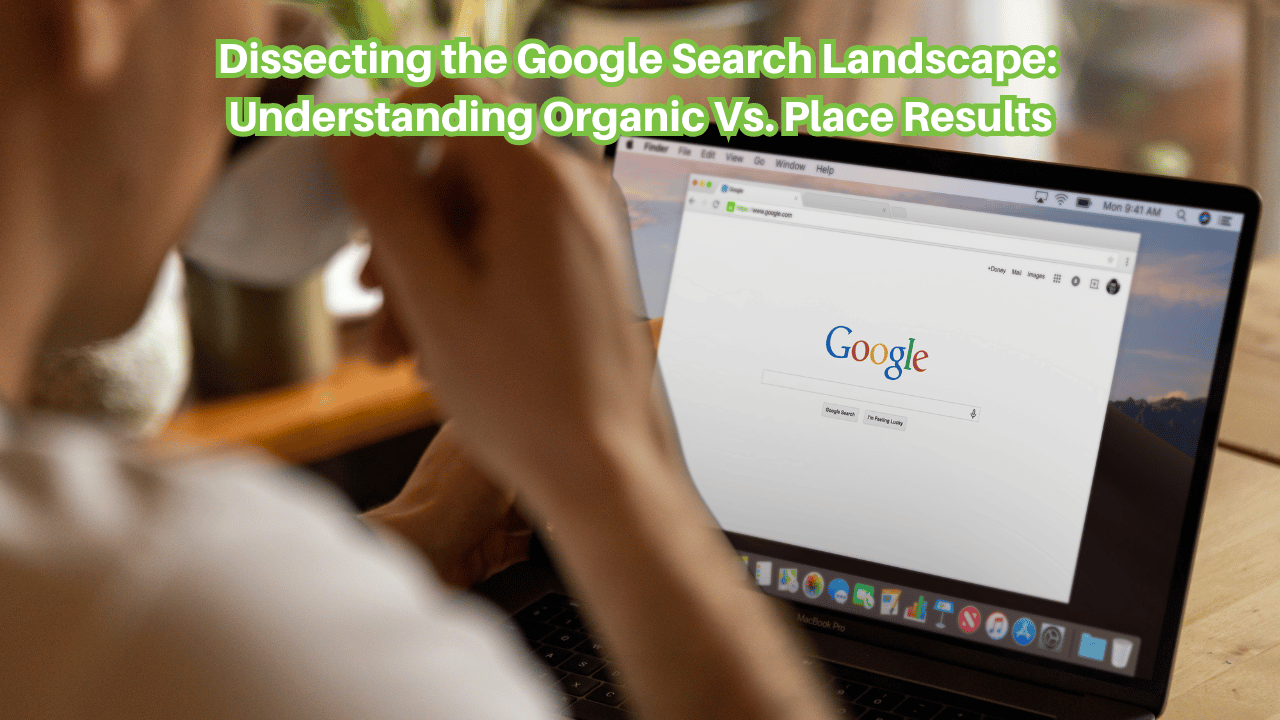When it comes to Google search results, there’s much more than meets the eye. Google’s algorithms decide the fate of various websites by determining their visibility on the search engine. To fully comprehend the mechanics behind Google search, it is imperative to understand the distinction between two significant types of results: Organic and Place Results. These two components of Google’s search results play a critical role in establishing an effective SEO strategy.
What are Organic Results?

Organic search results, as the name suggests, are the natural, un-paid search results that appear due to their relevance to the search terms. Google’s algorithm calculates the relevance based on numerous factors including content quality, keyword usage, and a site’s backlink profile. Every time a user enters a query, Google’s spiders crawl and index billions of pages to deliver the most relevant results.
From a marketing perspective, achieving a high rank in organic search results is a coveted objective, as these results are viewed by users as more authentic and trustworthy. However, climbing the organic search ladder requires time, effort, and a well-planned SEO strategy. Companies usually invest in content creation, keyword optimization, and link building to improve their organic search performance.
Exploring Place Results

On the other hand, Google’s Place results, also known as Local Search results, are directly tied to geographic locations. They appear when a user performs a search for a specific service or business near their location. For instance, if you’re searching for “Italian restaurants,” Google will provide a list of nearby restaurants in its Place results, including their names, ratings, addresses, and operating hours.
Place results play a crucial role in local SEO, helping businesses to attract local customers. To optimize for Place results, businesses should ensure their Google My Business listing is accurate and comprehensive, collect positive customer reviews, and use local keywords in their SEO strategy.
The Interplay Between Organic and Place Results
While both Organic and Place results serve different purposes, they are interconnected. A strong presence in the organic search results can positively impact your performance in the Place results, and vice versa. For instance, a high quantity of positive reviews can improve your organic search rankings, while a well-optimized website can increase your chances of appearing in the local search results.
In conclusion, a nuanced understanding of Google’s Organic and Place results is essential for any business looking to leverage SEO for increased visibility and customer engagement. By crafting a balanced strategy that caters to both these elements, businesses can ensure they make the most of the opportunities offered by Google’s search engine. Remember, a strong online presence starts with mastering the Google search landscape.
Click in the Link to See More Info About
SEO – Search Engine Optimization




